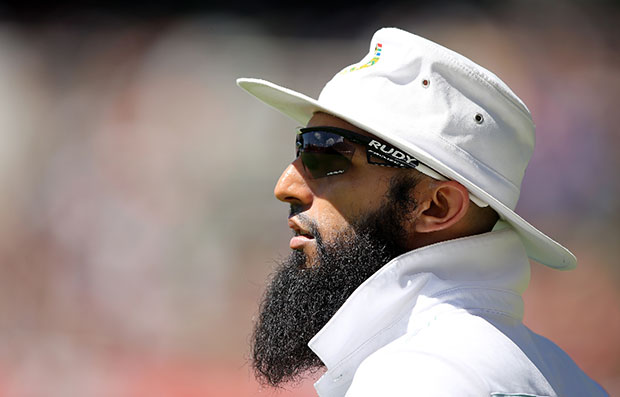Hashim Amla, in his first series as the Proteas Test captain, passed with flying colours to prove he has what it takes to lead a side in transition.
In the build-up to the series in Sri Lanka, there were very few doubts regarding Amla’s aptitude for the position. If there were concerns, it was how an inexperienced captain would cope with the loss of two South African giants: one a defiant and decorated opening batsman, the other the most accomplished all-rounder of all time.
It’s fair to say that Amla has more than allayed the concerns. In fact, he’s exceeded expectations.
South Africa won the series 1-0 to mark their first Test success in Sri Lanka since 1993. The Proteas dominated in Galle, and then fought doggedly for a draw in Colombo. They achieved this milestone series victory without Graeme Smith and Jacques Kallis in tow.
This is not to suggest that Smith and Kallis are no longer needed. Indeed, I’d love to see both coming out of retirement and contributing for a couple of seasons yet. I’m sure Amla wouldn’t mind their return either. It would certainly make his job as Test skipper so much easier.
Herein lies the point. Amla didn’t have Smith or Kallis to lean on in the recent series against Sri Lanka. He was tasked with marshalling a side in transition, and given the inexperience of a couple of players as well as the imbalance of the side as a whole, a draw for this new team in Sri Lanka may have been accepted as a qualified success.
There were further disruptions on the eve of the first Test in Galle. AB de Villiers was unable to keep wicket due to back problems, and so the duty fell to the 21-year-old Quinton de Kock, who would not have played otherwise. Dean Elgar went into this series having played just nine Tests. De Kock had only featured in one.
Elgar would come through for South Africa and Amla with a gritty century in the first innings, while Dale Steyn took 9-99 in unfavourable conditions. It was the latter performance that won the game for South Africa, but Steyn may not have enjoyed such an opportunity if not for Amla’s bold decision-making.
Amla declared twice in Galle, ensuring that there was sufficient time to claim 20 Sri Lankan wickets. As mentioned in a previous column, the Proteas have a poor bowling record in this part of the world, and prior to this series had dismissed Sri Lanka twice on just two occasions. If they were to accomplish the rare feat of claiming 20 sticks at least once in this series, it would go a long way towards winning the two-game rubber.
But time was always going to be a factor. Amla made the bold call, the right call, to set Sri Lanka a target of 370 with 120 overs remaining. It was then down to the Proteas bowlers to obliterate the Sri Lankan resistance. There was a chance that the Proteas would lose, but it was clear that the new captain truly believed his team would win.
If Amla was aggressive in Galle, he was resilient in Colombo. He had failed with the bat in the first Test, but it was his individual contributions in the second that kept South Africa’s hopes of a series victory alive. More valuable than the runs scored was the time spent at the crease. Amla led by example in a typically brave performance by the South Africans.
There will be sterner examinations of Amla’s tactical nous, perhaps not in Zimbabwe or in the subsequent series against the West Indies, but most certainly on future tours to Australia and England. There will be further setbacks and challenges that he will be forced to circumvent when match-winners like Steyn eventually hang up their spikes.
And yet, having witnessed the tactical decisions he made in Sri Lanka, and the manner in which he led a team bereft of two hugely experienced players, one has reason to believe that Hashim Amla will lead South Africa to even greater triumphs in the coming years.
Photo: Backpagepix







